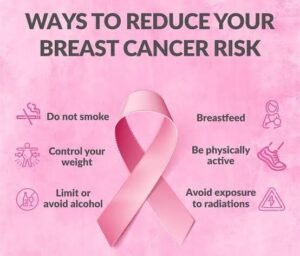The objectives of this study are to estimate rates and identify factors associated with erythema nodosum (EN) and pyoderma gangrenosum (PG) in pediatric patients with inflammatory bowel disease (IBD).
Why was this study done?
Erythema nodosum (EN) and pyoderma gangrenosum (PG) are two skin-related manifestations of inflammatory bowel disease (IBD). In adult patients with IBD, these conditions are well-studied, but there is limited data in pediatric patients. This study was done to further define the prevalence and key associations of EN and PG in pediatric patients using the largest registry.
Study overview
This study used data from the ImproveCareNow (ICN) network to define the prevalence of EN and PG in patients with IBD and compare differences between type of IBD, disease severity, and treatment outcomes. The authors found that patients with EN and PG are associated with tend to have worse intestinal disease, lower remission, higher inflammatory markers, and other conditions like joint pain (arthritis) and eye inflammation (uveitis). Interestingly, some patients had both EN and PG in their disease course.
Study limitations
This was a retrospective study using reported ICN data, which had variability in EN and PG diagnosis and reporting. The study did not investigate genetic or environmental factors that may contribute to the development of these skin conditions.
What does this mean for patients, families, and clinicians?
Clinicians who see pediatric patients with IBD can better educate and help increase awareness of these skin conditions, including awareness of the increased risk of increased arthritis and uveitis associated. Knowing that patients with EN and PG are at higher risk for worse intestinal disease, lower remission, higher inflammatory markers, and other conditions like joint pain (arthritis) and eye inflammation (uveitis) can put both clinicians and their patients on notice to be on the look out for these manifestations of their IBD. This is an important study as it is the largest study identifying the incidence of EN and PG and their associations with worse disease, lower remission and other extra-intestinal manifestations.
Study authors
Yousif ML, Ritchey A, Mirea L, Patel AS, Price H, O’Haver J, Rudo-Stern J, Montoya L, Gonzalez-Llanos L, Smith J, Zeblisky K, Pasternak B.
Study stats
This study was published in September 2024. You can locate it on our website and online in The Journal of Pediatric Gastroenterology and Nutrition
- Study citation: Yousif ML, Ritchey A, Mirea L, Patel AS, Price H, O’Haver J, Rudo-Stern J, Montoya L, Gonzalez-Llanos L, Smith J, Zeblisky K, Pasternak B. The association between erythema nodosum and pyoderma gangrenosum and pediatric inflammatory bowel disease. J Pediatr Gastroenterol Nutr. 2024 Nov;79(5):1009-1016. doi: 10.1002/jpn3.12370. Epub 2024 Sep 9. PMID: 39248246.
- Study sharing: This article is copyrighted by European Society for Pediatric Gastroenterology, Hepatology, and Nutrition and North American Society for Pediatric Gastroenterology, Hepatology, and Nutrition. Interested parties can request permission for reusing this content via the original article.
🔎 This ICN Research Explained was prepared by: Miranda Yousif, College of Medicine, University of Arizona College of Medicine-Phoenix; Brad Pasternak, Department of Gastroenterology, Phoenix Children’s Hospital; Mandy Fates, Parent, ImproveCareNow Research Committee
We believe that in order to truly outsmart IBD, the questions we ask and the answers we find must be generated by and be useful to the people whose lives they will impact – patients and their families. ImproveCareNow (ICN) research is prioritized based on what matters most to patients and parents, and we are committed to sharing our results so everyone can understand and take advantage of what’s been learned. The ICN Research Committee has teamed up with patients and parents/caregivers to create and share accessible summaries of completed research called ICN Research Explained
👀 Get #InTheLOOP with ICN Research Explained posts on the ImproveCareNow blog >>
📌 If you’d like to hear more about ICN Research subscribe to our Research Updates eNews and we will email you periodically with research opportunities & results!
💡 Everything we do in ImproveCareNow is magnified by the efforts of thousands of improvers! No action is too small; here are some ways to get started:
💚 Join the Patient Advisory Council (patients with IBD who are 14+)
💙 Join the Parent/Family Advisory Council (parents/caregivers of young people with IBD)
💚 Participate in our Current Research Opportunities (subject to eligibility)
💙 Support our work with a tax-deductible general donation or donation to the Richard B. Colletti Family Fund
💚 Subscribe to blog updates to stay #InTheLOOP with our IBD stories
💙 Download, use & share our free, co-produced IBD resources
💚 Connect with our welcoming & supportive pediatric IBD community and receive IBD resources, community stories, and ICN updates & opportunities


